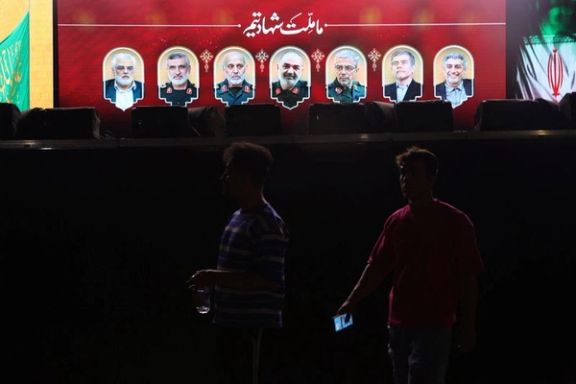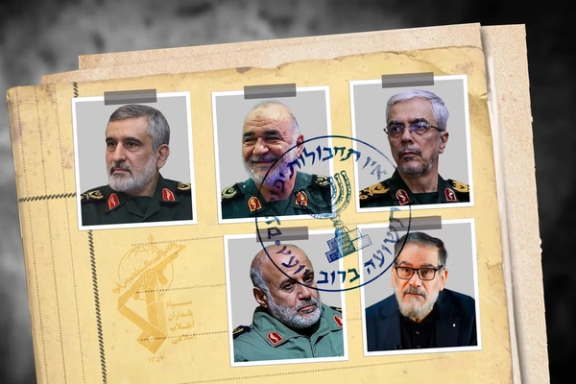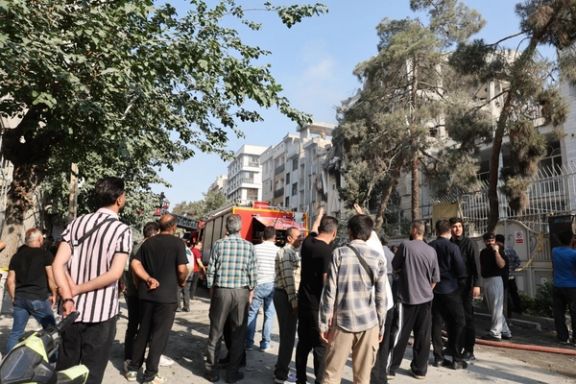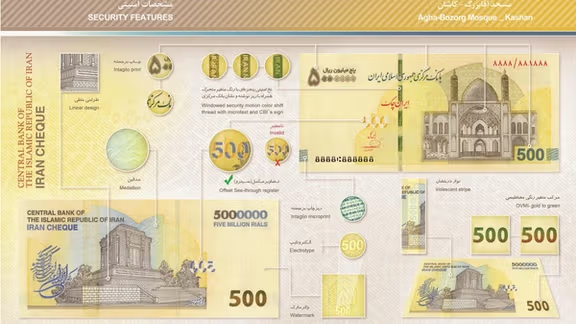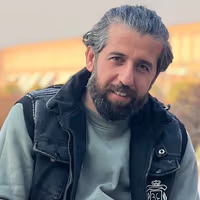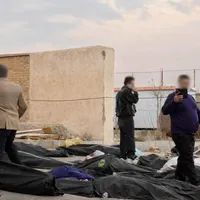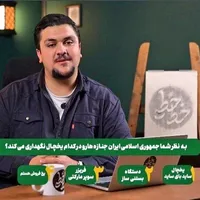“I wanted to thank Israel and Uncle Netanyahu for what they did last night and to tell Iran: You are nothing. (You say you are) a power in the region, but three of your top commanders were killed in a single attack,” a viewer said in his message.
“I want people to get out [on the streets to protest] and be united with each other and to topple this blood thirsty government,” she added.
In another message, a viewer said he was pleased by the Israeli attack which, according to the Israeli military hit dozens of military and nuclear sites and eliminated some of the country's top military leadership in an open-ended campaign dubbed "Rising Lion" by Netanyahu.
Iran has confirmed the deaths of several top commanders including the Revolutionary Guards (IRGC) Commander Hossein Salami, Chief of Staff of Armed Forces Mohammad Bagheri, and IRGC Aerospace Force Commander Amir-Ali Hajizadeh, and six nuclear scientists, including former chief of Iran's Atomic Energy Agency Fereydoun Abbasi.
There are also unconfirmed reports of the death of Ali Shamkhani, a top advisor to Supreme Leader Ali Khamenei, who has vowed a “severe punishment” and a “harsh response.
“Mr. Pezeshkian, do you remember saying Israel and America can strike Iran's nuclear facilities but can’t strike Iranian scientists? Israel just did that,” he asked. “Why do you speak so much nonsense?”
“You couldn’t do a damn thing! Thank you, thank you Uncle Netanyahu, even if it’s we [ordinary Iranians] who will suffer the consequences,” he added.
Following Israel’s military strike, the Iranian currency, the rial, experienced a sharp depreciation of at least 15% in the unofficial market.
The sudden plunge of the rial highlights growing public anxiety over potential escalation and lack of confidence in the government's ability to stabilize the economy amid intensifying geopolitical tensions.
Another Iran International viewer similarly thanked Israel but urged it not to forget to target Khamenei.
“No one approves of war, but I’m sure when it comes to the murderous and terrorist Islamic Republic, all the 80 or 90 million people in Iran approve of this attack,” she said.
“Now they will get the seriousness of the situation and will understand that although they may be able to bully the Iranian people and kill them on the streets, they can’t bully the world and the big powers,” she added.
In another message, a viewer expressed his happiness after realizing that the sound that woke him up was the sound of the explosion of Israeli bombs, not lightning.
“It was good news and a harbinger of freedom to all Iranians. Well done, Israel. You have avenged all those freedom-seeking youth who were torn apart and raped on the streets.”
In a statement shared online, Iran’s exiled crown prince, Reza Pahlavi, accused Khamenei of dragging the country into a war that does not reflect the will of the Iranian people, calling the current conflict "Khamenei’s war, not Iran’s."
He urged Iran's military, police, and intelligence personnel to distance themselves from what he described as a “corrupt and incompetent leadership” and to join the people.
The path forward, he said in his message, is the overthrow of the Islamic Republic through street protests and nationwide strikes.
Khamenei described the attack as a "crime" that revealed Israel's "evil nature" by targeting residential centers and said Israel will face “a bitter and painful end”.
In response, Iran launched a barrage of drones and missiles toward Israel just hours after the attack. Israeli defense officials claimed all drones were successfully intercepted.
A military official said in a Friday morning briefing that 200 fighter jets had been involved in the operation.
He said air defenses, ballistic missiles ready to launch to Israel and missile manufacturing sites and facilities were also targeted in the strikes. The operation came as Iran's nuclear program "is approaching the point of no return and is rapidly advancing toward obtaining a nuclear weapon", he told reporters.
"We struck their nuclear plan, and we struck military targets—before they had the ability to strike us with weapons of mass destruction, with nuclear weapons. We had no other choice, and we launched this operation now because this is the most appropriate time in light of this concrete threat. They have already obtained enough uranium for 15 nuclear weapons," he said.
